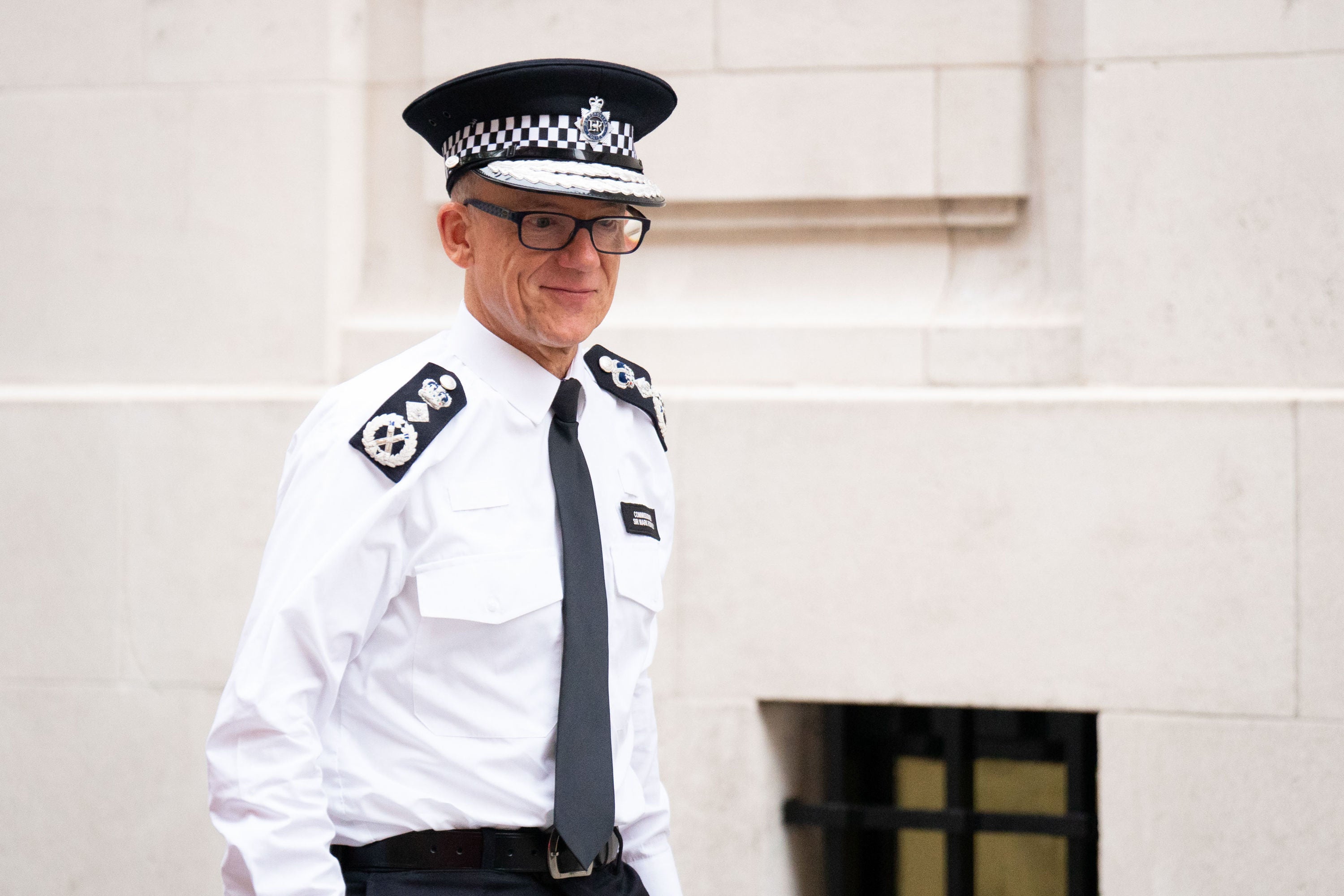David Carrick’s victims weren’t just let down by one man – but by the entire police force
Editorial: Commissioner Rowley and his counterparts need to get on with the job of sacking corrupt officers – and the home secretary needs to turn some of her authoritarian zeal to helping them do it

Police constable David Carrick of the Metropolitan Police Service admitted – and has been found guilty of – 49 serious charges (including 24 counts of rape) for crimes committed over an 18-year period. It is scarcely comprehensible that such an individual should have been able to go around destroying lives with impunity for so long, but as a serving police officer? Doubly appalling.
As is apparent from the details of the trial, he used a certain spurious charm to lure his victims, but he was greatly assisted by the misplaced trust placed in the police by his female victims. He had a taste for degrading and humiliating the women he befriended. He then effectively enslaved them – indeed, caged and starved them – and called them his slaves. It was betrayal and cruelty on an industrial scale. Eventually 12 brave women came forward. How many more Carricks or PC Wayne Couzens, or paler versions, remain in action?
How did such a depraved individual end up in the police, and how did it come to be that he was seemingly free to prey on women for two decades? These are questions that the Metropolitan Police have yet to answer.
Yet we know already that this grotesque individual was known to his colleagues as “B*****d Dave” because of his reputation for mean and cruel behaviour. Might this instead have raised some concerns among his colleagues?
Taken with other recent cases, such as the murder of Sarah Everard by Couzens, the revelations about obscene racism and misogyny at Charing Cross police station and the officers found guilty of photographing the dead bodies of two murdered sisters, Bibaa Henry and Nicole Smallman, it is a depressing picture.
In a comprehensive review of the Met’s failures, Baroness (Louise) Casey found that hundreds of racist, women-hating and corrupt officers have been left for too long in the ranks. Baroness Casey’s report found “systemic” failings in procedure and leadership in the Met.
Her words echoed past condemnations of “institutional racism” in the Stephen Lawrence case; and, further back, the Scarman report into the racism that sparked riots in the 1980s, and the widespread corruption in the Vice Squad in the 1970s. The officers who infiltrated environmental protests in the 1990s and fathered children by unsuspecting women did so because they worked under such a tacit code of misconduct.
Last year, commissioner Cressida Dick, too protective of her own force, eventually had to go because of the accumulation of evidence of poor standards. Yet the Met is hardly alone. The former chief constable of Nottinghamshire, Sue Fish, has said that sex on duty was seen as “a perk of the job” by officers. The grooming scandals in Rochdale and elsewhere have also undermined faith in policing.
Every time someone is given a uniform, warrant card and statutory powers, the community takes a risk that that individual isn’t worthy of that trust and will be open to corruption, or worse. Indeed, there are miscreants who are attracted by that power and motivated to pervert it.
The challenge is to create a culture and a set of rules and procedures that counter such tendencies, albeit among a minority. More reform is essential, and the new Met commissioner, Sir Mark Rowley, has admitted as much. He has openly complained that he lacks the power to sack “toxic” officers or effective means to vet his recruits. He says it’s “crazy”, and he is right.
It is one of the great curiosities of our times that a succession of disciplinarian Conservative home secretaries – Theresa May, Priti Patel and now, most strident of all, Suella Braverman – have been so keen to pile more and more draconian powers on the police; but yet give the leaders of our constabularies so little authority to improve the calibre of their forces.
There is a strong argument for making the police subject to some of the same kind of tough discipline that governs the armed forces, on whom we also depend for our security. We cannot, any longer, tolerate a situation where serving police officers accused of serious sexual and other offences are permitted to carry on as normal while under investigation, or given a desk job.
If HR procedures are too lenient and ponderous, then they should be swept away, and replaced with a more robust statutory code. Fear of the sack, and disgrace, should act as a deterrent to the aberrant officer; in such instances the first reaction of the Police Federation and senior officers should not be to defend a colleague but to defend the integrity of the force.
Most police officers are brave and conscientious, and beyond reproach, indeed under-appreciated. It’s hard work, sometimes harrowing. But for them to enjoy the reputation they deserve, trust – especially on the part of women and ethnic minorities – has to be restored.
Commissioner Rowley and his counterparts need to get on with that job, and Ms Braverman needs to turn some of her authoritarian zeal to helping them do it.
Join our commenting forum
Join thought-provoking conversations, follow other Independent readers and see their replies
Comments